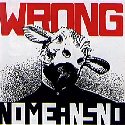|
bewbies posted:Do you have a source for this? This has been an area of emphasis of mine for a long time and I've never seen any work that really effectively argued that economic forces were the main driver of anything relating to abolitionism. A factor? Possibly, but not the main driver. I don´t have the source in font of me right now. Most of what I know of the Civil War comes from ¨Battle Cry of Freedom¨ part of the Oxford History of the United States. It´s quite well established that the majority of Americans in the north were bigoted against African-Americans. It´s likely that a majority of northerners opposed the enslavement of blacks. But at the same time the majority did not believe that blacks and whites were equal. States such as Illinois, Indiana, and others had laws that explicitly banned blacks (free or slave) from immigrating to their state. This didn´t actually stop black immigration; there were notable free black communities in southern Indiana before, during, and after the Civil War. However, it´s important to note that the white citizens of these states opposed any form of integration. Other evidence comes from Dred Scott´s treatment in Illinois and Minnesota; the ¨Black Republican¨ marches across the North; and the Union Armies´ classifcation of freed slave as ¨contraband¨ a status equal to captured horses and mules. Note that I´m not discussing outspoken northern abolitionists, who were a small minority in the north. I´m talking about people in the northern states as a whole. As a whole, it´s well accepted that most of them were quite racist by our modern standards. Remember that even Lincoln didn´t try to eliminate slavery until three years into the Civil War. The preceding statements are accepted by most historians. What follow is debatable. If the majority of northerners viewed black as inferior to whites, then was their opposition to slavery really based on basic human rights? I would say no. In my opinion, the majority of northeners took little interest in the plights of southern slaves and would have been content to let slavery continue in the South. Remember that Abraham Lincoln was elected on such a platform: ban slavery in the federal territories but allow it in the southern states. Thus the majority didn´t oppose slavery itself. In fact, they were willing to elect a president who would protect the peculiar institution in its heartland. While slavery would be outlawed in the West, millions of human beings would live their whole lives as proprty inthe South. Lincoln, and those who voted for him, were perfectly happy with this arrangement. But then why did they oppose slavery? Besides human rights, the next best answer is economics. Farmhands making a dollar or two day cost more than slaves who earned a few bowls of grits every day. Though wage labor was more productive than slave labor in the industrialized north, slave labor was more economical in the unsettled west. Thus, econmic competition was a major cause of resentment against slave owners. There´s a rough analogy to the modern day. Anti-immigrants groups often oppose immigration because immigrants steal native jobs. These groups often despise corporations who hire illegal immigrants, but that doesn´t mean they care one whit about the immigrants themselves. In the same way, common people in the north railed against slave owners, but that doesn´t mean they gave a drat about black slaves. Finally, don´t call me an apologist for racism and slavery. I don´t intend to justify the attitudes taht northerners had prior to the Civil War. I intend to highlight them.
|
|
|
|

|
| # ? Apr 27, 2024 19:32 |
|
Bagheera posted:It´s quite well established that the majority of Americans in the north were bigoted against African-Americans. It´s likely that a majority of northerners opposed the enslavement of blacks. But at the same time the majority did not believe that blacks and whites were equal. You seem to be confusing two different issues: society-wide racism and abolitionism. Ironically enough the two coexisted in the Northern states for decades prior to the war, and of course the former continues to exist in a somewhat limited form. The critical flaw, however, is that final connection you're trying to make between economic prerogatives (especially among the lower class) and the abolitionist movement. Quite simply, it was not there in any meaningful way. There is, interestingly, a fairly recent and very well written book on this exact subject: Free Soil, Free Labor, Free Men: The Ideology of the Republican Party before the Civil War. In particular, he addresses almost your exact point in Chapter 9 (forgive me for not typing this in its entirety, paraphrasing is probably easiest for everyone). His main points: 1) There were extremely strong ties between the most radical abolitionists and the Republican party despite the fact that the Republicans were not absolutely opposed to the existence of slavery. This went as far as sharing speeches and data between abolitionists and Republican politicians, as well as many shared goals regarding the mobilization of the public at large. Of course, eventually many key antislavery radicals ended up joining the Republican Party. 2) He directly addresses the historian who has most famously made your argument, a writer named Charles Beard (here is a good critique of Beard's thesis). Foner's main point here, and I think it is a great one, is that even though the Republican Party was a new and rather factionalized group at the time (particularly on economic issues), their one defining and shared characteristic was their work against slavery. In other words, they fought bitterly on economic grounds (which you, in contrast, suggest was their uniting force), while agreeing almost completely on the slavery issue. To me, this implies that economic issues categorically could not be a main driver of the abolitionist movement. If you're interested in reading more on this there is a book preview here, or just buy the book and read it in its entirety, it is one of the better (and most exhaustively cited) topical historical essays ever written on this period.
|
|
|
|
How effective was the OSS as far as clandestine warfare and spying was concerned? Tim Weiner's Legacy of Ashes writes off OSS as an organization that was fondly remembered, but not particularly effective in intelligence gathering and penetrating any of the Axis powers. The Wikipedia entry on OSS is a bit ambiguous about it too and, arguably, one could say that it shows the OSS being busy but not accomplishing much of anything.
|
|
|
|
Bewbies, thanks. I´ll check out the links you recommended.
|
|
|
|
Bagheera posted:But then why did they oppose slavery? Besides human rights, the next best answer is economics. Farmhands making a dollar or two day cost more than slaves who earned a few bowls of grits every day. Though wage labor was more productive than slave labor in the industrialized north, slave labor was more economical in the unsettled west. Thus, econmic competition was a major cause of resentment against slave owners. But surely the capital cost of buying a slave ( around $1000 ) would make the economic argument invalid. The unsettled west was hardly a major slave owning region. I don't think the economics of the american day labourer has poo poo all to do with slavery.
|
|
|
|
How badly did the Sack of Baghdad by the Mongols set back Islamic civilization and Western civilization as a whole?
|
|
|
|
Shimrra Jamaane posted:How badly did the Sack of Baghdad by the Mongols set back Islamic civilization and Western civilization as a whole?  Not too much, thank god. (USER WAS PUT ON PROBATION FOR THIS POST)
|
|
|
|
Really happy to see a thread like this pop up! I've been away from SA for about 3 years and I'm happy to have caught this thread at a glance... If anyone has any questions about Israeli military history, and the OP doesn't mind, I'd love to contribute. I'm not as formally trained as the OP or Bewbies, but I work as a defense and security journalist and I've sat down multiple times with Martin Van Creveld to pick his brain. Some topics for thought: * How Israel's early strategic doctrine was modeled almost 1:1 on the Nazi's * The massive tank battles of '67 (not so interesting) and '73 (very interesting) * How the IDF manages a high-tech, mobile, western army with conscripts I have faith that we can do this all without getting bogged down in boring, messy politics.
|
|
|
|
Tell us all about all three!
|
|
|
|
I have heard that the United States originally became involved in Vietnam because the French refused to join NATO otherwise. Even if this is true, I am sure it was only one of many reasons for US involvement over there, but can anyone confirm or deny that there is a link between the US in Vietnam and France joining NATO?
|
|
|
|
coolatronic posted:I have heard that the United States originally became involved in Vietnam because the French refused to join NATO otherwise. Even if this is true, I am sure it was only one of many reasons for US involvement over there, but can anyone confirm or deny that there is a link between the US in Vietnam and France joining NATO? France was an original member of NATO, so that does not make any sense. De Gaulle wanted to carve out a "third way" for France, so France withdrew from NATO military activities in the late 1950s and 1960s. That's about the time that US involvement ramped up and real combat involvement came after France had done things like forbid the stationing of foreign (i.e. American) nuclear weapons on its soil. The US would not have thought that joining in on Vietnam would bring the French back in. At the risk of simplifying America's approach to foreign policy, you can basically say that the US subscribed to George Kennan's "Domino Theory" and thought that if Ho Chi Minh was in charge of a unified Vietman under communist rule, that would create an extension of Chinese and/or Soviet influence in Asia. The fear was that after Vietnam, the rest of Asia would quickly follow suit and fall under communist control. That is why the US was so eager to get involved. Unfortunately, this school of thought ignored centuries of hostile China/Vietnam relations and also underplayed the gravity of the Sino/Soviet split and various ideological disagreements within the interational communist movement, but that's another topic altogether.
|
|
|
|
Zionist_en_fuego posted:Really happy to see a thread like this pop up! I've been away from SA for about 3 years and I'm happy to have caught this thread at a glance... Yeah, tell about all three. Israel has a very interesting military history for a country that young.
|
|
|
|
Also still hoping to hear some Finnish perspective on the Finnish/Soviet wars and how they are treated today.asbo subject posted:
|
|
|
|
Zionist_en_fuego posted:Really happy to see a thread like this pop up! I've been away from SA for about 3 years and I'm happy to have caught this thread at a glance... Im planning on buying a book about the Yom Kippur War, any suggestions?
|
|
|
|
Zionist_en_fuego posted:Really happy to see a thread like this pop up! I've been away from SA for about 3 years and I'm happy to have caught this thread at a glance... Tank battles, please.
|
|
|
|
tranceMD posted:Also still hoping to hear some Finnish perspective on the Finnish/Soviet wars and how they are treated today. Well, on the contrast to the Civil War, they are very highly talked about and respected, we have regular veteran days and there isn't a Finnish person alive who has never seen a war veteran in school/has talked with one/has one as a relative. It's the most respected part of our history, despite the fact that we allied with the Nazis. Even the most hardcore anti-war communist university students would never badmouth a war veteran. In military, Finland still defines itself by Russia in almost every aspect. The Winter War is the high point. Bad equipment, far less men and we still defended ourselves against an completely unwarranted attack. If someone is praising Finland during WWII, he's probably talking about the events of the Winter War. I think people are starting to realize that we were the aggressors in the Continuation War, so it doesn't get mentioned as much despite the fact that it was longer. I guess it's a thing of pride. We took on the Soviet Union, arguably the most powerful war machine in the world at the time, and resisted. While all the other Nordic countries stayed mostly out of the war and were under the thumb of one country or another, we were always independent. There are three European capital cities that were never occupied during WWII, and Helsinki is one of them. The aftermath is thought as a thing of pride too, we kept our independence and paid every penny of our reparations to the Soviet Union, and became pretty good friends with them afterwards too (while still managing to stay neutral and democratic during Cold War). I think Finland is still one of the closest country to Russia, and we don't have nearly as much grievances with them as their other close relations, etc. Ukraine or even Belarus lately have. That's my summary at the least. If you want something more specific, feel free to ask.
|
|
|
|
DarkCrawler posted:I guess it's a thing of pride. We took on the Soviet Union, arguably the most powerful war machine in the world at the time, and resisted. While all the other Nordic countries stayed mostly out of the war and were under the thumb of one country or another, we were always independent. There are three European capital cities that were never occupied during WWII, and Helsinki is one of them. Seems like a lot more than three to me: Lisbon, Madrid, wins32767 fucked around with this message at 15:36 on Aug 20, 2010 |
|
|
|
wins32767 posted:Geneva I think you mean Bern
|
|
|
|
Yea, I always mess that one up.
|
|
|
|
I'm guessing he meant the capitals of European nations that participated in the war. As for Finnish people not mentioning Continuation War because we were the agressors that time, I'm not so sure if that's the reason. Most people will still try to justify it by saying "we had no other choice but to side with the nazis and attack", which is not entirely wrong as Soviet Union certainly had plans for Finland post-Winter War too, but it's also not entirely right either. What would have happened to Finland after the Winter War if we had not seeked German support and instead tried to return to neutrality or seek closer relations with Allies can only be speculated, but I'm pretty sure the whole "ajopuu"-theory has been debunked by now. I believe that people don't talk about it as much simply because it wasn't as remarkable (dramatic, if you will) as the Winter War was, but it will still be defended by many Finns as justified. The far larger number of war movies about the Continuation War (I can think of six, two of which came out within the last decade) than about the Winter War (just one) speaks for itself, I think.
|
|
|
|
Well, to be fair, the Continuation War was about reclaiming what was lost during the Winter War, so you can hardly say it was completely unjustified. Hell, Hitler wanted the Finish to help occupy Russia (the Leningrad area, to be specific), but Mannerheim told him to go suck it. E: Puukko naamassa posted:I'm guessing he meant the capitals of European nations that participated in the war. Mr. Sunshine fucked around with this message at 16:19 on Aug 20, 2010 |
|
|
|
Mr. Sunshine posted:Well, to be fair, the Continuation War was about reclaiming what was lost during the Winter War, so you can hardly say it was completely unjustified. Hell, Hitler wanted the Finish to help occupy Russia (the Leningrad area, to be specific), but Mannerheim told him to go suck it. True, in Continuation War Finland tried to reclaim what it had lost in the Winter War, but what's not acknowledged (or even fully known) by many Finns is that we also tried to do it "with interest". Here is Finland in 1939, before the Winter War:  ...and here's the furthest Finnish and German troops pushed during the Continuation War:  As you can see, the Finnish Army went quite a bit further than just the pre-war borders. Finnish military leaders justified this with acquiring areas that could be more easily defended, and in addition if things would go bad, these areas could be used to bargain with the Soviet Union (didn't quite work out that way). However among some circles these actions were seen as necessary steps in the formation of so-called Greater Finland, which would encompass not just the pre-war Finnish Karelia and Pechenga, but also what is today the Republic of Karelia and the Murmansk Oblast, which had never been a part of the Republic of Finland, or the Grand Duchy before it. Something along these lines:  This kind of thing is what many Finns conveniently forget these days. Though "Greater Finland" was mostly the dream of a small right-wing minority of the population back then, it's nevertheless pretty embarassing. Puukko naamassa fucked around with this message at 17:18 on Aug 20, 2010 |
|
|
|
The Winter War is also quite important for the Swedish self-image when it comes to WW2, since our actions during the Winter War look a lot more noble than the wishy-washy activities on other fronts; with a prince and a huge chunk of the bourgeoise really liking that Hitler chap, selling iron ore to Germany and generally appeasing both sides enough for neither to invade us. In comparison to that, a large number of Finnish civilians, especially children, were offered refuge in Sweden. 70 000 Finnish children were sent to and stayed in Sweden from 1939 to -44, a large number of them went without their parents and were temporarily (and sometimes permanently) adopted by Swedish families. We also sent support in the way of supplies and 8 000 volunteer soldiers. Those kinds of volunteers are much nicer to be reminded of than the 5th SS Panzer Division Wiking.  Finnish children returning to Finland in 1946. Many came to Sweden with only nametags on them. A child going away at an early age and then returning after 7 years would have little memories of their real families, and there are several movies done in both countries about these "Finlandsbarn" and their dramatic childhoods (Finnish children). lilljonas fucked around with this message at 17:20 on Aug 20, 2010 |
|
|
|
wins32767 posted:Seems like a lot more than three to me: Lisbon, Madrid, I think he meant belligerents.
|
|
|
|
lilljonas posted:selling iron ore to Germany About this: legally there's nothing that prevents a neutral country from trading with a belligerent one, so unlike some of the other stuff that Sweden did during the war, it wasn't a breach of neutrality; it just pissed Churchill off a lot. Also, getting that ore sold to SOMEONE was vital for the Swedish wartime economy; seeing as how (post 1940) we were completely surrounded by German allied or occupied states, it's not like we had a wide selection of possible buyers. Besides, if we had outright refused to sell it, the Germans would just have invaded and taken the mines for themselves, considering how important it was to them. It wasn't until 1943-44 that Sweden was strong enough militarily that we stood a reasonable chance of resisting a (limited) German attack, which incidentally was also when we stopped making deals with them.
|
|
|
|
Alekanderu posted:About this: legally there's nothing that prevents a neutral country from trading with a belligerent one, so unlike some of the other stuff that Sweden did during the war, it wasn't a breach of neutrality; it just pissed Churchill off a lot. Also, getting that ore sold to SOMEONE was vital for the Swedish wartime economy; seeing as how (post 1940) we were completely surrounded by German allied or occupied states, it's not like we had a wide selection of possible buyers. Besides, if we had outright refused to sell it, the Germans would just have invaded and taken the mines for themselves, considering how important it was to them. It wasn't until 1943-44 that Sweden was strong enough militarily that we stood a reasonable chance of resisting a (limited) German attack, which incidentally was also when we stopped making deals with them. True, and in some ways the Swedish neutrality policy did good things: the Jewish population of Denmark could be ferried over to Sweden when Germany occupied the country, saving many from certain death. Norwegian partisans could strike German targets in Norway and fade away across the border. But post-WW2 selling iron ore to Germany wasn't something to take pride in, while the Finland solidarity movement was a pretty nice thing to for your neighbour.
|
|
|
|
I heard Sweden threatened with blowing the Iron mines in the event of a German invasion. Is there any truth to this?
|
|
|
|
Qvark posted:I heard Sweden threatened with blowing the Iron mines in the event of a German invasion. Is there any truth to this? I haven't found any reliable source for this, but a lot of things insinuate it. In case that wouldn't have happened there were vague allied plans to invade northern Sweden from Narvik as well, simply to take control of the mines and let the Germans have the rest, which was of little strategic value. And in case of a German invasion, railroads from the mines to the sea would be fair game for allied, Norwegian and anti-nazi Swedish partisans, so the German access to Swedish ore would be pretty hosed up no matter what. Actually, the "in case of a German invasion" scenario is pretty difficult to figure out. A lot of the officer staff of Sweden were pro-nazis, while there was also a sizeable socialist and communist resistance movement, partly forged in the Spanish Civil War, who were in contact with Moscow and were set to both kill off officers and blow up infrastructure in case of an invasion. And northern Sweden has always been a stronghold of the leftist parties of Sweden, so it would not surprise me if a significant sabotage campaing would have been waged there, no matter the stance of the government in Stockholm. lilljonas fucked around with this message at 21:00 on Aug 20, 2010 |
|
|
|
lilljonas posted:I haven't found any reliable source for this, but a lot of things insinuate it. In case that wouldn't have happened there were vague allied plans to invade northern Sweden from Narvik as well, simply to take control of the mines and let the Germans have the rest, which was of little strategic value. And in case of a German invasion, railroads from the mines to the sea would be fair game for allied, Norwegian and anti-nazi Swedish partisans, so the German access to Swedish ore would be pretty hosed up no matter what. Part of the Allies' FORTITUDE NORTH deception before D-day was basically telling Sweden "we're going to take your ore mines away if you keep selling to the Germans", and then waiting for this to filter back to the Germans and for the Germans to work out how the Allies intended to be in a position to do so (e.g. invade Norway, not France).
|
|
|
|
lilljonas posted:...there were vague allied plans to invade northern Sweden from Narvik as well, simply to take control of the mines and let the Germans have the rest, which was of little strategic value. I have been unable to find further sources for this, but I was told by one of the guides at the Boden fortress that the allies' plans for taking the fortress in case of an actual invasion involved something like 10.000 soldiers. Of course, this was before the Germans captured Eben-Emael with a handful of paratroopers and proved that forts were useless in the new mobile warfare.
|
|
|
|
lilljonas posted:True, and in some ways the Swedish neutrality policy did good things: the Jewish population of Denmark could be ferried over to Sweden when Germany occupied the country, saving many from certain death. Norwegian partisans could strike German targets in Norway and fade away across the border. But post-WW2 selling iron ore to Germany wasn't something to take pride in, while the Finland solidarity movement was a pretty nice thing to for your neighbour. The white busses and Raoul Wallenberg where also enabled by Sweden being neutral. Sweden actually had a very small amount of nazis compared to our occupied neighbors. Partly because the Germany wasn't allowed to recruit in Sweden. Swedes wishing to join the nazis had to go to Denmark or Norway first. About 300 Swedes joined the SS which is small compared to the ~3000 Danish and ~3000 Norwegians.
|
|
|
|
I remember reading somewhere that the SS pretty much hosed up their chances of getting more Swedish volunteers into the Waffen-SS by disrespectful treatment of a Swedish officer who had joined, which alienated/angered the Swedish officer corps. Without the support of Swedish army officers, any recruitment attempts wouldn't have succeeded. I think it was in George H. Stein's book Waffen-SS, any truth to it?
|
|
|
|
lilljonas posted:ctually, the "in case of a German invasion" scenario is pretty difficult to figure out. A lot of the officer staff of Sweden were pro-nazis, while there was also a sizeable socialist and communist resistance movement, partly forged in the Spanish Civil War, who were in contact with Moscow and were set to both kill off officers and blow up infrastructure in case of an invasion. Wasn't the situation more like that the Swedish upper class and the middle class were more like pro-German, less pro-Nazi? There's a distinct lack of officers or prominent politicians in the member lists of the nazi organisations in Sweden at the time.
|
|
|
|
Can anyone point me toward a history of industrial metallurgy? It's obviously had military uses, but the scale went far beyond that and I'd like an idea of what life was like or what manpower was required in fairly early industrialized mines like in England and Bohemia.
|
|
|
|
Kemper Boyd posted:Wasn't the situation more like that the Swedish upper class and the middle class were more like pro-German, less pro-Nazi? There's a distinct lack of officers or prominent politicians in the member lists of the nazi organisations in Sweden at the time. Prominent political figures like the king and the prince? While not members of the nazi party, the royalty had pro-nazi sentiments, and king Gustav V sent a congratulatory telegram to Hitler when he invaded the Soviet Union. And here is the infamous picture of prince Gustaf Adolf giving money to a Nazi campaign in Berlin 1939, dressed in military uniform:  The prince spent every summer in the 30's in Germany since he had married a German princess, and princess Sibyllas father was a staunch Nazi. This meant that the prince spent lots of time making friends with high ranking Nazis. For example, Herman Göring spent lots of time in Sweden and had many friends in powerful places, including the royalty. I don't know exactly the number of pro-Nazi officers in the army, but it was enough that those who planned resistance in case of a German invasion had the assassination of pro-Nazi officers one of their primary objectives, next to sabotage of infrastructure. Aside from that, there were also a number of pro-Nazi people among powerful businessmen as well as in academia. The university here in Lund had at least until recently a really interesting staircase built in the 30's with swaztikas on the hand rail. Overall, pro-nazi and pro-german sentiments were strong among the aristocracy in Sweden in the 30's. While they might not have enrolled in the Nazi party, which wasn't as strong in Sweden as in other Nordic countries afaik, their sympaties were clear. lilljonas fucked around with this message at 08:27 on Aug 22, 2010 |
|
|
|
lilljonas posted:Prominent political figures like the king and the prince? While not members of the nazi party, the royalty had pro-nazi sentiments, and king Gustav V sent a congratulatory telegram to Hitler when he invaded the Soviet Union. And here is the infamous picture of prince Gustaf Adolf giving money to a Nazi campaign in Berlin 1939, dressed in military uniform: Note that I'm not going for the traditional whitewash of recent history, but I think that the case for Swedish support for Hitler was very much a complex issue with various elements playing into it. Traditionally Sweden was very germanophilic and for example almost everyone in academia for example learned german because it was the language of academia at the time. Germanophilia and anticommunism might have been more important reasons than the actual nazi ideology for aligning with Germany at the time, at least for many. The absence of a nazi party with significant and widespread support in the elections would at least to a degree support this view. It would be interesting to read the files on people that were assembled by the predecessors of Säk during this period of time.
|
|
|
|
Kemper Boyd posted:Note that I'm not going for the traditional whitewash of recent history, but I think that the case for Swedish support for Hitler was very much a complex issue with various elements playing into it. I do agree to this to a point, but it should be mentioned that things like racial biology and eugenics were also strong in Sweden. So while a lot of the support for Germany was about a rich bourgeois class being afraid of a Soviet-backed Communist revolt etc., they also were very down with persecution of non-Swedish minorities, forced sterilization etc. They were not necessarily good people being duped by that crafty Nazi guile to turn their teenage fandom of Goethe into support for the Nazi regime. I do agree with you that with the Swedish history of a strong Socialist and Communist movement, it is not surprising that a lot of rich people were pretty stoked about Hitler "showing those Reds a thing or two". No matter if it was Soviet soldiers being attacked by tanks or German union members being murdered by the SA.
|
|
|
|
lilljonas posted:I do agree to this to a point, but it should be mentioned that things like racial biology and eugenics were also strong in Sweden. So while a lot of the support for Germany was about a rich bourgeois class being afraid of a Soviet-backed Communist revolt etc., they also were very down with persecution of non-Swedish minorities, forced sterilization etc. They were not necessarily good people being duped by that crafty Nazi guile to turn their teenage fandom of Goethe into support for the Nazi regime. I do agree with you that with the Swedish history of a strong Socialist and Communist movement, it is not surprising that a lot of rich people were pretty stoked about Hitler "showing those Reds a thing or two". No matter if it was Soviet soldiers being attacked by tanks or German union members being murdered by the SA.
|
|
|
|
Groda posted:Didn't what is now Centerpartiet show some pretty open support for the Nazi Party? How did that turn out for them? The Danish farmers party (which we used to call our center parties) broke out of Venstre in 1934 and became more and mores snuggly with the Nazis. The leader of the Swedish center party promised to make a commission on their Nazi history, but avoided it, which lead to this article (Swedish): http://www.newsmill.se/artikel/2010/05/24/bosse-om-centernazism Instead of actually doing the commission thing, our dear erudite Maud held speeches that compared the European Monetary Union to the Third Reich based on deep reflections like "Hitler did crazy things". Basically, a lot of vocal pro-nazi politicians jumped ship in '42-'43, and the Swedish agrarian party was happy to welcome them. A lot of the most vocal anti-semitic fascists previous to the war had a background in agrarian associations like Jordbrukarnas Riksförbund. One example from that article is that the politician, author and member of Svenska Akademien (the people who give out the Noble Prize in Literature)P O Sundgren was a nazi party member before the war, and then jumped ship to the agrarian party. He removed all traces of his previous allegiance, but when he met other members of parliament that had jumped ship to more democratic parties outside the toilets he would give them a Hitler salute and say "Mein führer". The crowning glory though is that a farmers' association called Sjöbröderna were planning to build a concentration camp in Sjöbo immediately after a Nazi take-over, and then German SS troops in collaboration with Swedish Nazis would gather up the Jewish population for extinction. It's amazing given that Sjöbo is a tiny town that has been lambasted by the rest of the country for decades now for their insane racism and xenophobia towards immigrants. So now I know where that comes from.
|
|
|
|

|
| # ? Apr 27, 2024 19:32 |
|
Are you a Dane or Swede? ...or something in between
|
|
|























